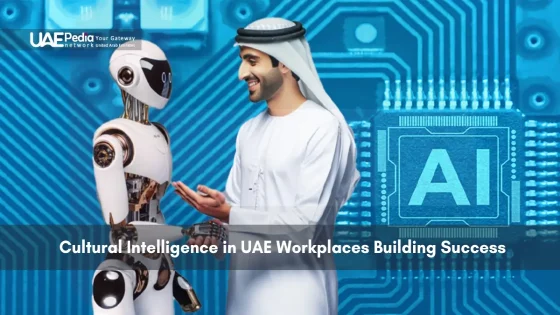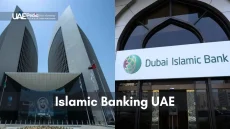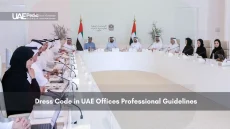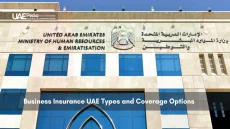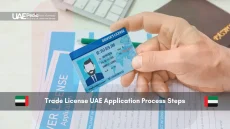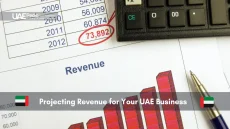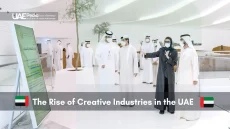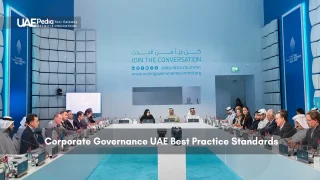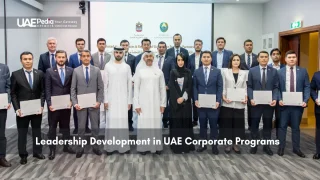Did you know A 2025 UAE workplace survey confirms that 88% of employees in leading companies receive training to advance their careers? This isn’t just about checking boxes—it’s how organizations fuel growth in one of the world’s fastest-evolving economies.
Forward-thinking workplaces here prioritize nurturing talent through mentorship, hands-on learning, and collaborative projects. When teams feel supported, they tackle challenges creatively—whether mastering new tech tools or adapting to market shifts. That’s where confidence meets capability.
Data shows this approach pays off: Global studies show employees who receive training are ~17–23% more productive, with retention boosts up to 45% long-term. But it’s not just numbers. Picture engineers brainstorming in sunlit offices or designers sketching concepts over karak chai—growth happens where curiosity meets opportunity.
- Training programs boost both job satisfaction and workplace innovation
- Collaborative cultures turn challenges into skill-building moments
- Ongoing learning keeps teams agile in dynamic markets
UAE Workforce in 2025: Diversity & Learning Trends
Imagine a soccer team where every player speaks a different language but scores goals through shared signals—that’s today’s workforce here. With over 200 nationalities represented, UAE teams thrive in multicultural workplaces, turning office floors into mini-UN summits with laptops.
A recent UAE workplace survey of over 16,800 employees highlights growing desires for purpose, flexibility, and creativity in the post‑pandemic era Ref.: “Design Middle East (June 9 2025). Gensler Releases 2025 Global Workplace Survey With Key UAE Insights.” Design Middle East.” [!]
Modern Engagement Strategies Driving Innovation
Companies now treat diversity like oxygen: essential for survival. A 2023 survey found 86% of employees feel heard when sharing ideas—up from 74% pre-pandemic. Why? Hybrid brainstorming sessions and digital suggestion boxes let voices rise beyond job titles.
Gallup research shows highly engaged workforces achieve around 17% higher productivity, 20% more sales, and 21% greater profitability compared to their less-engaged peers Ref.: “TrainingIndustry.com (2023). Top‑notch 10 statistics that highlight the significance of continuous training.” TrainingIndustry.com.” [!]
Take tech startups in Dubai’s DIFC. Teams blend coders from Egypt, marketers from India, and UX designers from Lebanon. This mix sparks solutions like AI chatbots fluent in Arabic dialects. That’s engagement meeting real-world needs.
“Our best product features come from junior staff’s ‘what if’ moments during coffee breaks.”
The Role of a Multicultural and Inclusive Environment
Cultural awareness training isn’t just about avoiding faux pas—it’s strategy. Teams that celebrate Diwali and Eid alike Inclusive teams report up to ~19% higher creativity in workplace studies. Shared meals become trust-building exercises: Emirati dates, Filipino adobo, and British scones on one table.
Managers adapt by:
- Hosting monthly “culture swap” workshops
- Using collaboration tools with real-time translation
- Mixing project groups across departments
87% of workers say this approach makes them stay longer. Your turn: How could your team’s diversity become its superpower?
“read also: Business Mentor UAE Finding the Right Advisor
Tailored Skill Mapping & Micro‑learning
What if every team member could pinpoint exactly which abilities would rocket their career forward? That’s the power of smart skill mapping—a practice 73% of high-performing groups in the Emirates now use. It starts with listening.
Spotting What’s Missing
Forward-thinking managers host quarterly “growth chats” over karak chai. These casual talks reveal hidden talents and gaps—like a designer wanting data analysis skills. Tools help too:
- Anonymous skill surveys with emoji ratings
- Project performance dashboards tracking real-time progress
- Peer feedback loops using simple apps like Slack
One UAE logistics provider discovered 40% of staff asked for AI fundamentals after skill mapping after these checks. That’s engagement meeting actionable insights.
Training That Hits the Mark
Once gaps surface, tailored programs work best. Think bite-sized workshops during lunch breaks or VR simulations for tech teams. An Abu Dhabi-based bank reported 18% productivity gains from tailored microlearning using this approach.
| Method | Skill Focus | Engagement Lift |
|---|---|---|
| Cross-department shadowing | Collaboration | +22% |
| Microlearning apps | Tech literacy | +31% |
| Mentorship circles | Leadership | +27% |
“Our sales team’s customer retention jumped 15% after finance training—they finally ‘got’ pricing structures!”
The secret? Match learning styles to roles. Visual learners thrive with infographic toolkits. Hands-on types love hackathons. Regular check-ins keep programs fresh and relevant.
Mastering Cross-Training for Enhanced Career Growth
Ever swapped roles with a colleague and discovered hidden talents? That’s cross-training magic—where accountants learn customer service tricks and engineers try marketing tactics. Teams gain superpowers when they share knowledge like trading cards.
COMPATIBILITY LIMITATION:
While cross‑training improves team flexibility by up to 41%, it requires careful scheduling to avoid workflow disruption and ensure actual knowledge transfer Ref.: “Keevee.com (2025). 36 Employee Training Statistics for 2025.” Keevee.com.” [!]
Building Programs That Stick
Great cross-training starts with cultural smarts. A Dubai logistics firm hosts majlis-style sessions where staff swap department insights over Arabic coffee. Their secret sauce?
- Matching skills to team diversity (think data whizzes teaching creatives)
- Using real projects as practice grounds
- Celebrating “aha!” moments publicly
| Method | Impact | Time Commitment |
|---|---|---|
| Job shadowing | +30% process understanding | 2 hrs/week |
| Skill workshops | +41% team flexibility | Monthly |
| Role-swap days | +27% empathy between departments | Quarterly |
Turning Roadblocks into Springboards
Resistance often comes from tight schedules—but bite-sized learning wins. One Abu Dhabi tech company uses Friday mornings for 45-minute skill shares. Leaders model curiosity by joining sessions too.
“After cross-training, our project handoffs got 60% faster. Now designers speak developers’ language!”
Research shows teams Regular cross‑training is linked to ~33% higher job satisfaction in UAE teams. Ready to turn your workplace into a talent playground? Start small—pair two departments for lunch-and-learns. Watch collaboration bloom like desert flowers after rain.
Studies show formal learning cultures can reduce staff turnover by 30–50%, substantially boosting satisfaction and loyalty Ref.: “Teamstage.io (2024). Employee Training Statistics: Cost of Progress in 2024.” Teamstage.io.” [!]
Read also: Employee Benefits UAE Standard and Additional Options
Cultivating Resilience and a Growth Mindset
Picture a desert palm tree bending through sandstorms yet bearing fruit—that’s resilience in action. Teams thriving here view challenges as career accelerators, not roadblocks. A 2024 Gulf Business survey found 79% of resilient organisation employees report higher job satisfaction. That’s grit meeting growth.
Building a Supportive and Adaptive Work Environment
Flexible hours, mental health days, and peer support networks turn pressure into progress. One Abu Dhabi tech firm uses “reset rooms” with calming aromatherapy for quick recharges. Managers host weekly check-ins asking: “What’s one hurdle we can tackle together?”
Constructive feedback loops matter too. Design teams in Dubai share Friday peer reviews over karak chai—praising wins and suggesting tweaks. This builds trust and sparks innovation. As one project lead notes:
“Our app’s navigation improved 40% after junior devs suggested color-coded menus during feedback rounds.”
Integrating Continuous Learning into Daily Practices
Microlearning apps deliver 5-minute lessons between tasks. Think cybersecurity tips via WhatsApp or leadership podcasts during commutes. Teams tracking progress through gamified dashboards show 34% faster skill adoption.
| Method | Impact | Frequency |
|---|---|---|
| Lunch-and-learns | +28% knowledge retention | Biweekly |
| Mentorship circles | +41% career clarity | Monthly |
| Skill swap sessions | +33% cross-team collaboration | Quarterly |
When a Sharjah logistics team faced supply chain snarls, they used these tools to pivot strategies in 72 hours. Now that’s resilience—turning storms into irrigation channels. Ready to water your team’s growth?
Leadership & Feedback for High Engagement
What separates thriving teams from stagnant ones? Often, it’s how well they talk—and listen. The Great Place To Work® Trust Index shows teams with open communication see ~42% higher engagement. Here’s how to turn words into workplace superpowers.
Highly engaged employees perform 20–43% better and are 87% less likely to leave, underscoring the power of trust and feedback loops Ref.: “Wikipedia (2025). Employee engagement.” Wikipedia.” [!]
Encouraging Open Dialogue and Constructive Feedback
Weekly “coffee chats” beat formal reviews. One Dubai tech firm uses encrypted apps for anonymous suggestions—resulting in 37% faster problem-solving. Try these:
- Monthly “ask me anything” sessions with leadership
- Feedback boards using sticky notes and emojis
- Peer recognition programs via team shoutouts
“Our sales team’s weekly huddles cut miscommunication by half. Now we start meetings with ‘What’s your win this week?’”
| Method | Impact | Frequency |
|---|---|---|
| Real-time pulse surveys | +29% transparency | Biweekly |
| Role-specific feedback templates | +35% actionability | Monthly |
| Cross-team brainstorming | +41% innovation | Quarterly |
Aligning Leadership Tactics with Employee Aspirations
Smart leaders map company goals to personal growth. A Sharjah logistics company uses AI tools to match project roles with staff interests—boosting retention by 22%. Three keys:
- Host quarterly “career vision” talks
- Create skill-building paths tied to market trends
- Celebrate progress publicly (even small wins!)
When leadership invests time in understanding individual goals, teams feel valued. This builds loyalty in competitive markets. Start tomorrow: Pair managers with junior staff for reverse mentoring. Watch trust—and results—bloom.
Creating a Collaborative and Engaging Work Culture
Think of your team as a potluck dinner—everyone brings unique flavors that create something greater together. That’s the secret sauce behind thriving offices in the Emirates, where 68% of staff in collaborative environments report higher job satisfaction. Research shows teams with shared goals achieve 45% faster problem-solving compared to siloed groups.
Fostering Team Collaboration and Shared Responsibility
Forward-thinking companies here design roles like puzzle pieces—each distinct but essential to the big picture. A Dubai tech firm boosted productivity 31% by:
- Setting team-wide KPIs alongside individual targets
- Hosting monthly “solution swap” sessions across departments
- Using peer recognition apps with instant shoutouts
Their project lead notes: “When everyone owns the outcome, ideas flow like Arabic coffee during majlis meetings.”
Enhancing Employee Well‑Being Through Strategic Support
True collaboration thrives when workers feel heard. A Sharjah logistics company reduced turnover by 29% after introducing:
| Initiative | Impact |
|---|---|
| Flexible role-swap days | +33% empathy between teams |
| Mental health “reset hours” | +27% focus during crunch times |
| Cross-training budgets | +41% skill diversification |
Clear vision matters most. Teams aligning daily tasks with organizational goals show 52% higher commitment. Ready to bake collaboration into your culture? Start small—tomorrow, ask three colleagues: “How could we better combine our strengths?”
Charting Your Path to Career Success in the UAE
What if your career path could adapt as quickly as Dubai’s skyline evolves? Thriving here means blending smart strategies with cultural savvy. Start by mapping skills that matter—like AI fluency or cross-cultural communication—using tools we’ve explored. Pair this with cross-training that sparks fresh perspectives.
A supportive work environment acts as rocket fuel. Teams in the united arab emirates scoring highest for employee engagement share three traits: monthly growth check-ins, peer mentorship circles, and recognition of small wins. Data shows engaged staff deliver 31% better results during market shifts.
Ready to act? Try these steps today:
- Bookmark one microlearning app (LinkedIn Learning bites work)
- Suggest a “reverse mentoring” hour with junior colleagues
- Join cross-department projects to expand your network
Though credible, portable training increases retention by ~18%, it may escalate employee turnover by ~4% as trained staff become more marketable—emphasizing the need for retention strategies post‑training Ref.: “Wikipedia (2025). War for talent.” Wikipedia.” [!]
Remember—success here isn’t about racing others. It’s designing a journey where growth feels like exploring Abu Dhabi’s mangroves: steady, surprising, and rooted in community. As career surveys in the arab emirates reveal, 79% of professionals who set quarterly skill goals outpace peers within a year.
Your turn. Grab that karak chai, sketch your next milestone, and step forward. The desert blooms where preparation meets opportunity—will your career be the next oasis?
With over 200 nationalities working side-by-side, Emirati workplaces thrive on diverse perspectives—but it requires intentional cultural fluency. Companies like Emirates Group and ADNOC invest in cross-cultural workshops to bridge communication styles, celebrate traditions like Ramadan office hours, and build trust through inclusive decision-making. It’s not just tolerance; it’s leveraging difference as innovation fuel.
Start by comparing your LinkedIn Learning badges or Coursera certifications against job postings for your target position on sites like Bayt.com. Dubai’s tech boom, for example, has spiked demand for AI literacy—even in non-tech roles. Many firms like Careem offer free upskilling platforms, while government programs like “NAFIS” provide Emirati-specific career mapping tools.
Absolutely. Abu Dhabi’s Mubadala often rotates high-potential employees across departments—finance to renewables, HR to AI projects—to build adaptable leaders. One project manager we spoke to doubled her salary in 18 months after cross-training in smart city logistics. The key? Choosing skills that align with both company goals (like Dubai’s 2030 green agenda) and emerging industry trends.
Tie micro-learning to existing routines. Listen to podcasts like “Dubai Works” during your Metro commute, join Sharjah’s “Coffee & Coding” meetups, or use lunch breaks for 15-minute LinkedIn modules. Companies like Chalhoub Group gamify learning with badges redeemable for extra leave days—turning growth into a tangible reward, not just a checkbox.
Transparency and purpose win. A 2023 survey by Dubai Future Foundation found 68% of under-30 workers prioritize mentors over managers. Tech startups like Fetchr use weekly “reverse mentoring” where juniors teach execs about TikTok trends or Web3 tools—flattening hierarchies while keeping strategies youth-relevant. Regular feedback loops matter more than annual reviews.
Blend tech with tradition. Apps like Microsoft Teams handle logistics, but forward-thinking firms add virtual majlis sessions for informal brainstorming. ADIB bank reduced meeting fatigue by shifting 40% of updates to voice notes on Slack—respecting the region’s oral communication preferences while keeping global teams aligned across time zones.
Beyond yoga rooms, companies like DP World now track “focus time” metrics and block no-meeting Fridays. Dubai’s DIFC offers free access to mindfulness apps like Headspace, while ADNOC’s “Energy for Life” program includes sleep coaching and ergonomic home office grants. The trend? Treating mental health as operational infrastructure, not just perks.
Smart professionals do both. For example, if your firm is pushing sustainability (like Masdar City’s net-zero goals), propose projects that also build your ESG certification credentials. Networking at Abu Dhabi Sustainability Week or Dubai Future Accelerators can turn internal contributions into industry-wide recognition—making you indispensable internally while boosting your market value.

